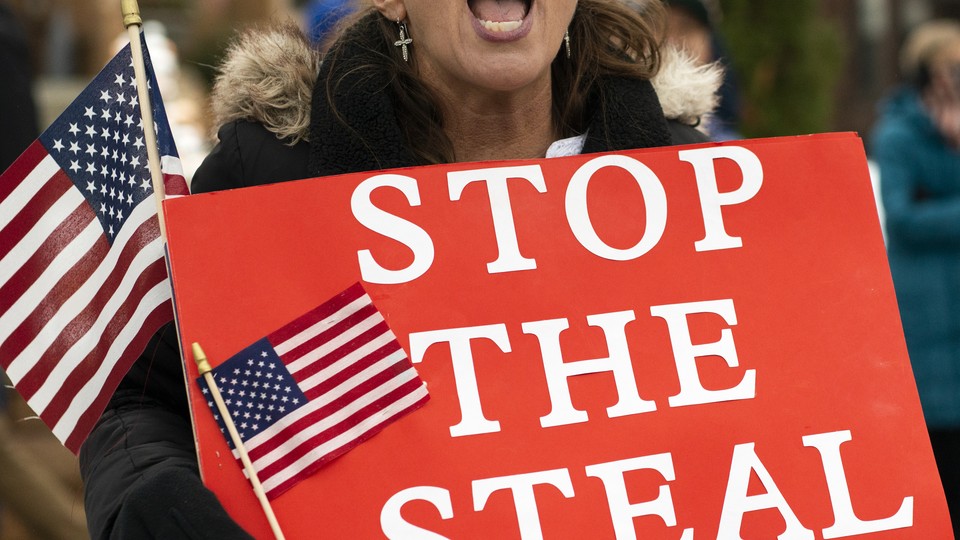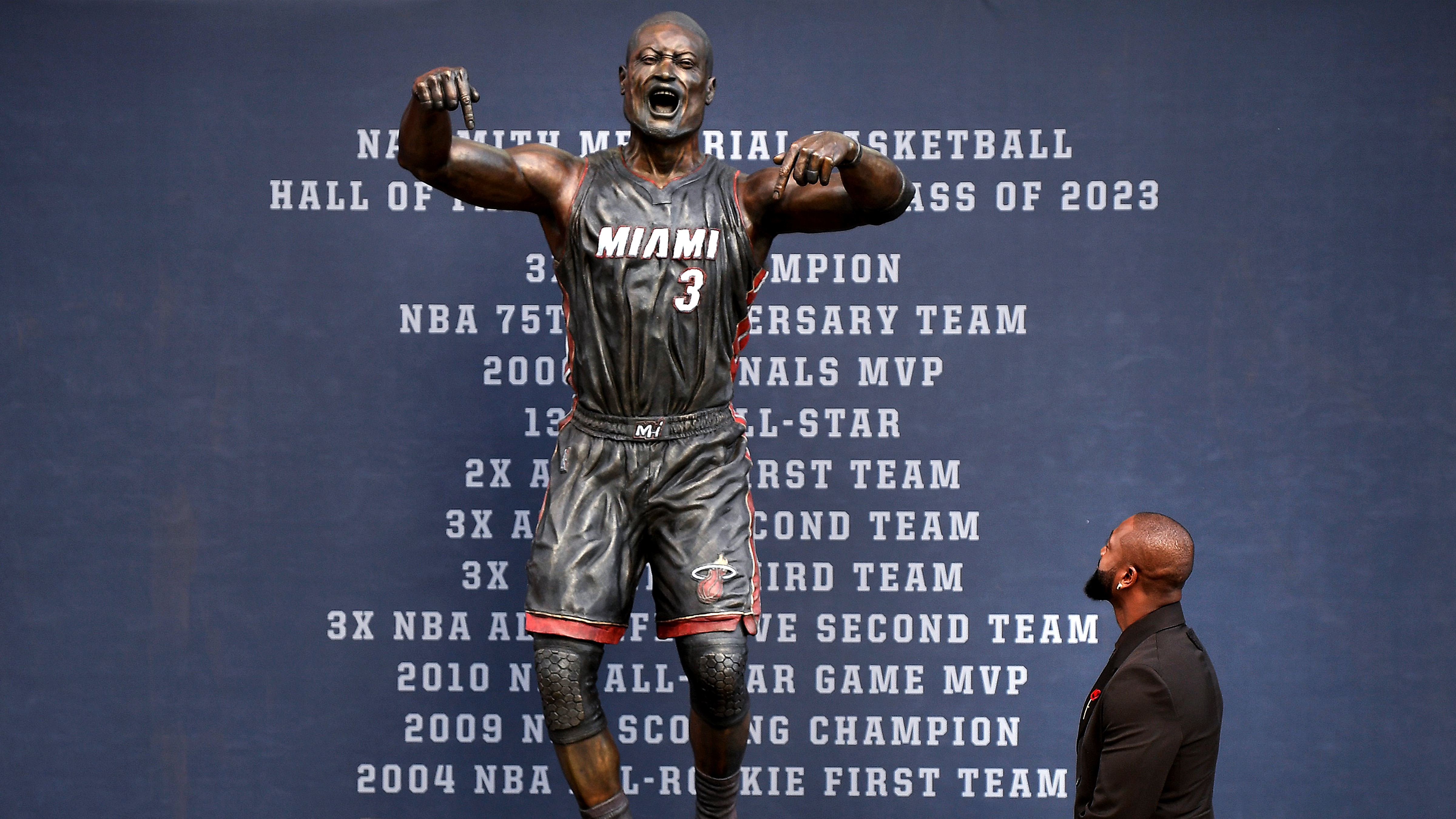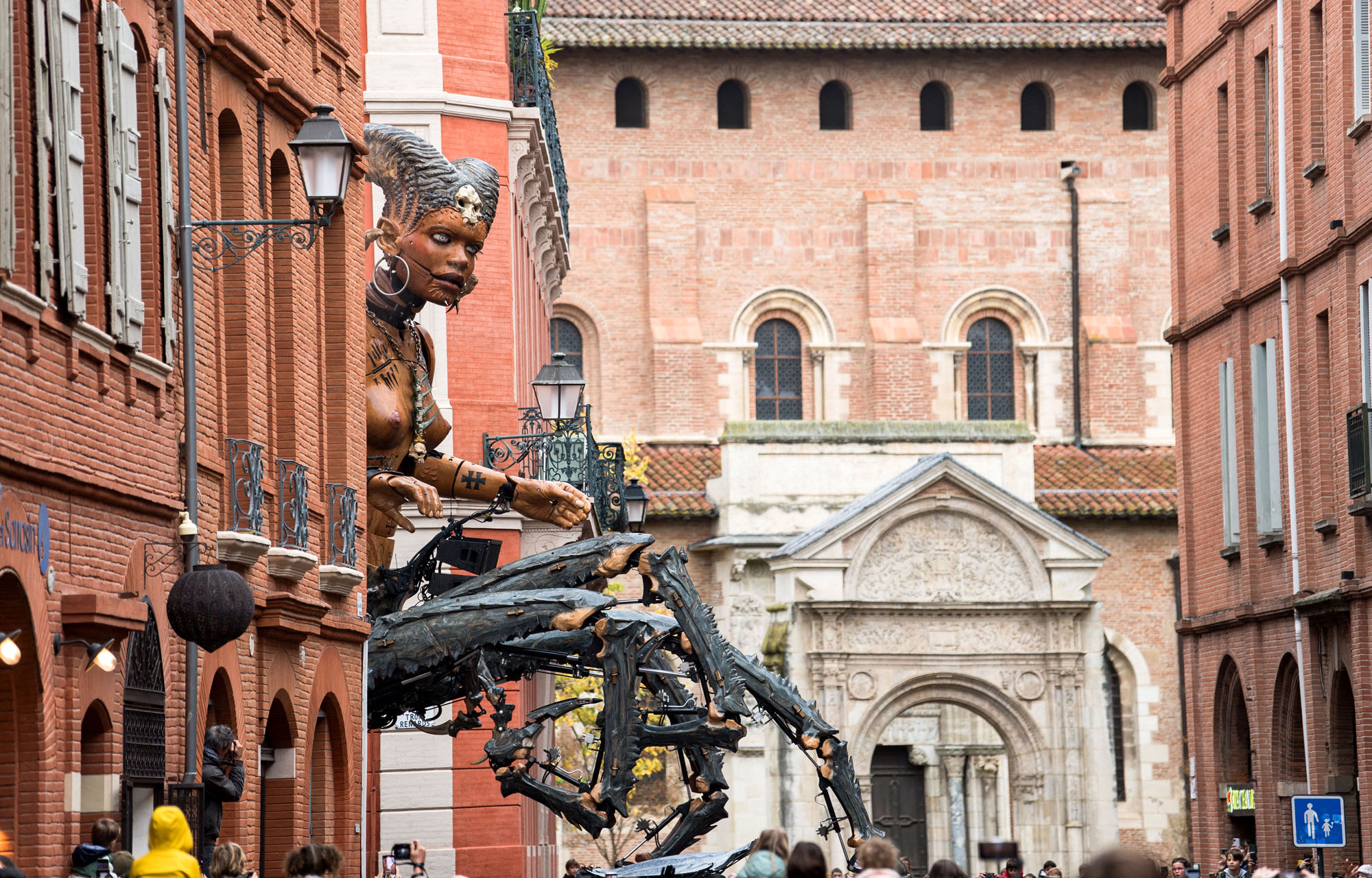What Election Integrity Really Means
6 min read
This is an edition of The Atlantic Daily, a newsletter that guides you through the biggest stories of the day, helps you discover new ideas, and recommends the best in culture. Sign up for it here.
The phrase election integrity sounds noble on its face. But in recent years, election deniers have used it to lay the groundwork for challenging the results of the 2024 election.
A few months after Donald Trump took office in 2017, he signed an executive order establishing the “Presidential Advisory Commission on Election Integrity.” The Brennan Center for Justice wrote at the time that “there is strong reason to suspect this Commission is not a legitimate attempt to study elections, but is rather a tool for justifying discredited claims of widespread voter fraud and promoting vote suppression legislation.” That proved prescient. Although there is no evidence of widespread fraud in the 2016 or 2020 elections—or in any other recent elections, for that matter—Trump and his allies have fomented the narrative that such interference is a real problem in America, employing it in the illegal attempt to overturn the 2020 election and their reported plans to claim that the 2024 race is rigged.
As part of this strategy, right-wing activists and lawyers have organized initiatives under the auspices of electionintegrity, warping the meaning of those words to sow distrust. Through her Election Integrity Network, theright-wing activist Cleta Mitchell has been recruiting people—including election deniers who will likely continue to promote disinformation and conspiracy theories—to become poll workers and monitors, in an effort that was reportedly coordinated with members of the Republican National Committee. Poll watching in itself is a timeworn American practice, although it has been misused in the past; now, however, election-denial groups are sending participants to polling places under the presumption that fraud is taking place.
More recently, Elon Musk—in addition to his own brazen efforts to get Trump reelected—has invited X users to report activity they see as suspicious through an “Election Integrity Community” feed, an effort almost certain to trigger a flood of misinformation on the platform. In Texas, Attorney General Ken Paxton’s Election Integrity Unit has gone to great lengths to seek evidence of fraud; in one case, nine armed officers reportedly appeared with a search warrant at the door of a woman who had been working with a Latino civil-rights organization to help veterans and seniors register to vote.
The RNC, especially under the influence of its co-chair Lara Trump, has taken up “election integrity” as an explicit priority: As she said at a GOP event over the summer, “we are pulling out all the stops, and we are so laser-focused on election integrity.” Her team created an election-integrity program earlier this year and hired Christina Bobb, who was later indicted for efforts to overturn the results of the 2020 election in Arizona (she has denied wrongdoing), as its lead election-integrity lawyer. As The New Yorker reported earlier this month, the RNC plans to staff a “war room” with attorneys operating an “election-integrity hotline” on Election Day. Such initiatives have helped inject doubt into a legitimate process. Despite the clear lack of evidence to suggest fraud is likely in this election, nearly 60 percent of Americans already say they’re concerned or very concerned about it, according to a recent NPR/PBS News/Marist poll; 88 percent of Trump supporters said they were concerned about fraud (compared with about 30 percent of Kamala Harris supporters).
The “consistent, disciplined, repetitive use” of the term election integrity in this new context is “designed to confuse the public,” Alice Clapman, a senior counsel in the Brennan Center’s Voting Rights Program, told me. A sad irony, she added, is that those who use this framing have done so to push for restrictions that actually suppress voting, including strict voter-ID laws and limitations on early ballots, or to threaten the existence of initiatives to ensure fair voting. Many of the same activists promoting “election integrity,” including Cleta Mitchell, organized a misinformation campaign to undermine a bipartisan state-led initiative called the Electronic Registration Information Center, which was created in 2012 to ensure that voter rolls were accurate. Multiple states eventually left the compact.
The term election integrity isn’t entirely new—Google Trends data suggest that its usage has bubbled up around election years in recent decades. But its prominence has exploded since 2020, and the strong associations with election denial in recent years means that other groups have backed away from it. “Like so much charged language in American politics, when one side really seizes on a term and uses it in a loaded way,” it becomes “a partisan term,” Clapman told me. Now groups unaffiliated with the right are turning to more neutral language such as voter protection and voter security to refer to their efforts to ensure free elections.
Election deniers are chipping away at Americans’ shared understanding of reality. And as my colleague Ali Breland wrote yesterday, violent rhetoric and even political violence in connection with the election have already begun. This month so far, a man has punched a poll worker after being asked to remove his MAGA hat, and hundreds of ballots have been destroyed in fires on the West Coast. Election officials are bracing for targeted attacks in the coming days—and some have already received threats. If Trump loses, the right will be poised—under the guise of “election integrity”—to interfere further with the norms of American democracy.
Related:
- The swing states are in good hands.
- The next “Stop the Steal” movement is here.
Here are three new stories from The Atlantic:
- Vann R. Newkirk II on solidarity and Gaza
- The closing case against Trump
- How the Trump resistance gave up
Today’s News
- Steve Bannon, a former Trump adviser, was released from federal prison after completing his four-month sentence for being found in contempt of Congress.
- Vice President Kamala Harris’s speech tonight—which she says will be her campaign’s closing argument—will be delivered from the Ellipse in Washington, D.C., the same location where Trump spoke on January 6, 2021.
- Israel’s Parliament passed two laws yesterday that include provisions banning UNRWA, a UN relief agency for Palestinian refugees, from operating in the country. Israel has accused several members of UNRWA, which distributes the majority of aid in Gaza, of participating in the Hamas attack on October 7.
More From The Atlantic
- The end of Francis Fukuyama
- “Dear James”: My colleague repeats herself constantly.
- Revenge voting is a mistake, Gal Beckerman argues.
- The people who don’t read political news
- Under the spell of the crowd
Evening Read

The Worst Statue in the History of Sports
By Ross Andersen
Earlier this year, the Lakers unveiled a Kobe Bryant statue with oddly stretched proportions and a too-angular face. It made Bryant look like a second-rate Terminator villain, and to add insult to injury, the inscription at its base was marred by misspellings. In 2017, fans of Cristiano Ronaldo were so aghast at a sculptor’s cartoonish bust of the legendary footballer that they hounded him into making a new one.
It gives me no pleasure—and, in fact, considerable pain—to report that Dwyane Wade’s statue may be the worst of them all.
Read the full article.
Culture Break

Check out. These photos show an urban opera featuring three massive robotic puppets of mythological creatures, which performed in several locations around Toulouse, France.
Read. Lowry Pressly’s new book, The Right to Oblivion, argues that privacy is the key to a meaningful existence, John Kaag writes.
Play our daily crossword.
Stephanie Bai contributed to this newsletter.
When you buy a book using a link in this newsletter, we receive a commission. Thank you for supporting The Atlantic.



